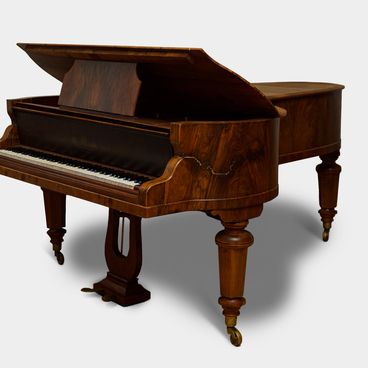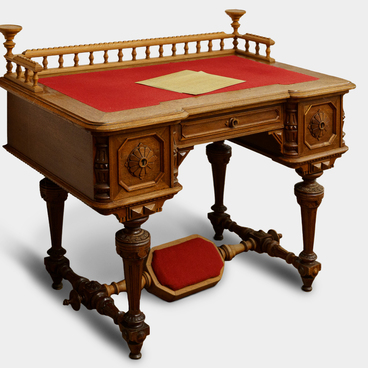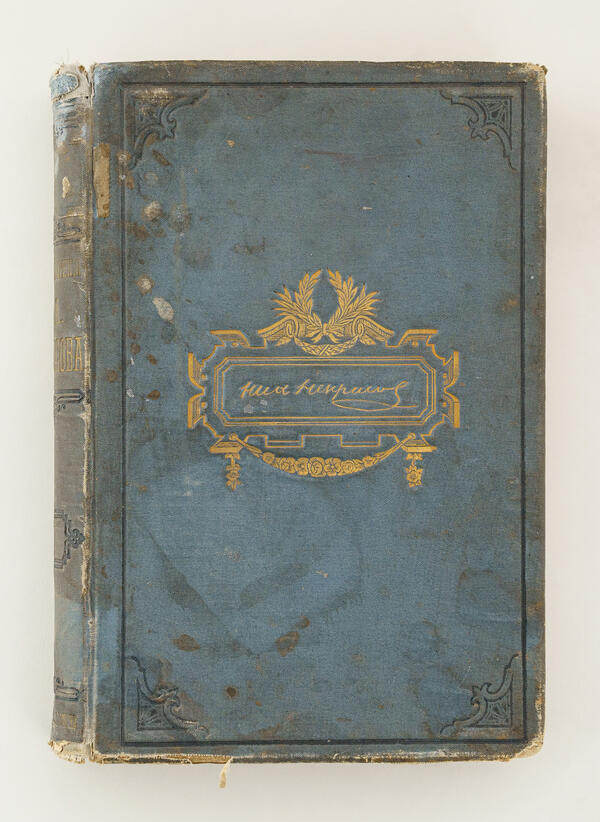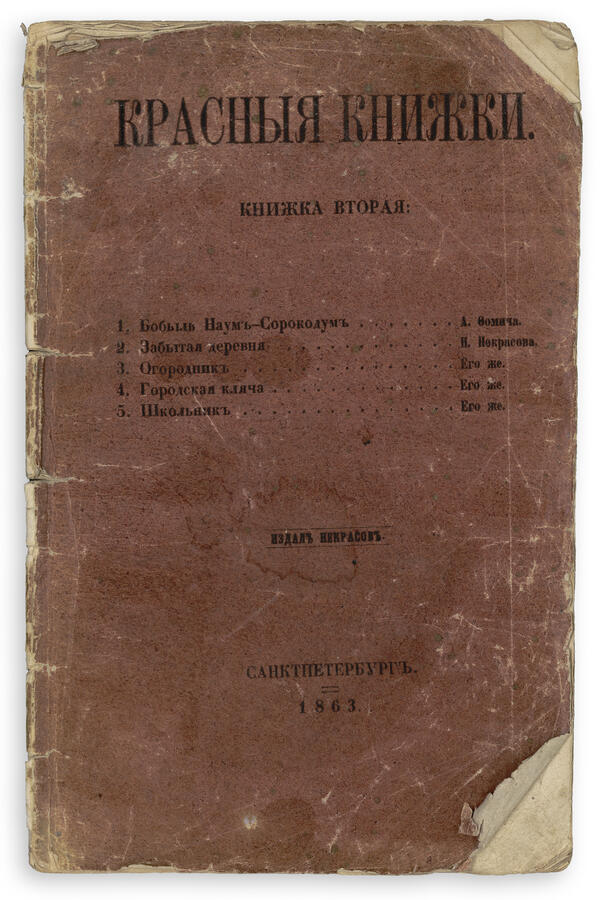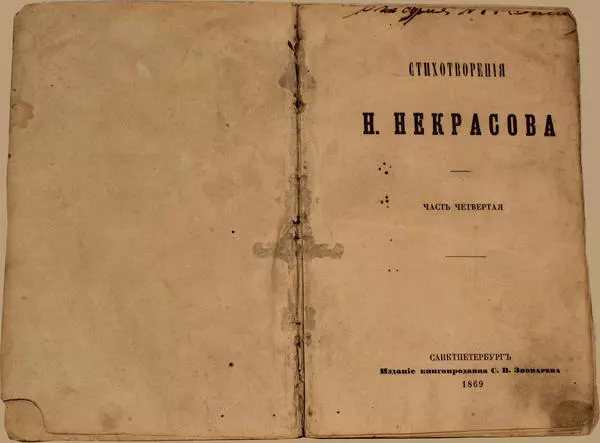In 1867, Nikolay Alexeyevich Nekrasov planned to publish a “Book of poems for children’s reading”. He wrote pieces for it in different years: “Uncle Yakov”, “Bees”, “General Toptygin”, “Nightingales”, “On the Eve of the Bright Holiday”. The poem “Railway” also originally had the subtitle “Dedicated to Children”.
During Nekrasov’s lifetime, some of his children’s poems were published in various collections, but a separate edition never came out. The idea was realized only after the poet’s death.
When Nikolay Alexeyevich died in 1877, his sister Anna Butkevich received the exclusive copyright to the works. Nekrasov wrote to her, “You alone are my true friend.” She was the poet’s favorite sister.
Anna Alexeyevna completed a course at Maria Butkevich private boarding school in Yaroslavl and for some time served as a governess or class supervisor.
In 1843, she married Henrikh Stanislavovich, one of the Butkevich brothers. Her husband was an officer in an infantry regiment that was quartered in Yaroslavl. During the defense of Sevastopol in 1854–1855 he was severely wounded and his leg was amputated. Later, he retired in the rank of lieutenant colonel. The Butkevich family life did not work out, and soon they separated. Anna Alexeyevna worked first as a tutor for the children of the engineer Alexander Nikolayevich Yerakov, and then became his common-law wife.
Anna Alexeyevna was known as a translator from the French language. She lived mostly in Saint Petersburg, but often visited the Karabikha estate.
According to the researcher Vladislav Yevgenyevich Yevgenyev-Maksimov, after Nekrasov’s death Butkevich “created for herself a real cult of his memory and gave the best of her effort to serve this cult”. When selecting works for the book of children’s poems by Nekrasov, in addition to those mentioned above, Anna Alekseyevna also included excerpts from the poems “Grandfather Frost, Red Nose”, “Sasha”, “Who Is Happy in Russia?”, “Peasant Children”, as well as the poems “Children’s Crying”, “Green Roar” and “Unharvested Field”.
This selection of poems was made by Anna Alexeyevna
for a reason. All of them included children’s themes, were accessible to the
child’s perception, making them a direct participant in the events that took
place in the story. They had two purposes: instructive, as was required by the
popular enlightening pedagogy of the time, and entertaining.

